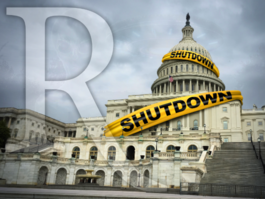Democrats Can Win the Budget Debate
A Commentary By Joe Conason
Having hesitated to fully enter the fiscal fray, President Obama has at last delivered a plausible, principled response to the budgetary flim-flams of the far right. But one speech, even a very good speech, won't fulfill his obligation in this fateful argument.
What Obama began to do this week is what Democrats ought to have been doing forcefully for many weeks, which is to ensure that Americans understand the central differences between Democratic and Republican budgeting -- and how the party's contrasting programs would affect them and their families. While acknowledging the need to bring the federal budget closer to balance in coming years, the president laid down real markers concerning how that objective should and should not be achieved.
It should not be done, he said, by raising the costs of medical care beyond affordability for most of the nation's elderly, as the Republican assault on Medicare would eventually do. It should not be done by slashing programs that assist the nation's poor and vulnerable. And it cannot be done at the expense of future generations, by vandalizing the nation's infrastructure through neglect or depriving the nation's children of educational opportunity.
It must be done instead, said the president, in ways that reflect American traditions of fairness (which in bygone days were once honored by the leaders of the Republican Party, who now disdain them). It must demand the most from those who have benefited most, rather than treating them to still more tax cuts. It must restore the standards that made America the leader of the world in education, research and public investment ever since the Second World War, rather than accelerating our decline.
As expected, Obama the politician sought to position himself as close to the center (and independent voters) as he could, by reminding Democrats and progressives that the rapidly rising cost of health care is unsustainable -- and that the concept of "shared sacrifice" doesn't exempt anyone's priorities, including his and theirs. As usual, he gave away too much before the negotiating process has even started.
Yet the president and his political advisers clearly feel that they must establish credibility as budget balancers if they are to prevail. Bill Clinton began his presidency by confronting the Republican legacy of deficits with higher taxes and lower expenditures, but Obama had no realistic choice other than to increase spending substantially -- or let the country and the world sink into depression. Now, from the president's point of view, he is bargaining from a weakened position and has no choice but to emphasize cutbacks over revenue.
Polls still show, however, that the public agrees with Obama on the most important issues, from preserving Medicare and Social Security entitlements to raising taxes on the wealthy to investing in education, the environment and infrastructure. Very few outside the most dogmatic precincts of the Republican Party believe that the richest of the rich need additional tax cuts, or that such cuts should take priority over food stamps and Medicaid.
Is that an "excessively partisan" or "dramatically inaccurate" way to describe the Republican fiscal philosophy, as House Budget Committee Chairman Paul Ryan complained so bitterly in his rejoiner to Obama's speech? Is the president's plan "hopelessly inadequate," as Ryan said, when compared with his own ever-changing, wildly phony "path to prosperity"?
Ryan's angry response has opened up the possibility of a debate that the country desperately needs. Let us hope that Obama doesn't shrink from that challenge or delegate it to someone else. If his presidency is to become anything but the prelude to an era of decline, he must keep pushing forward just as aggressively as the Republicans push backward.
COPYRIGHT 2011 CREATORS.COM
See Other Political Commentary.
See Other Commentary by Joe Conason.
Views expressed in this column are those of the author, not those of Rasmussen Reports.
Rasmussen Reports is a media company specializing in the collection, publication and distribution of public opinion information.
We conduct public opinion polls on a variety of topics to inform our audience on events in the news and other topics of interest. To ensure editorial control and independence, we pay for the polls ourselves and generate revenue through the sale of subscriptions, sponsorships, and advertising. Nightly polling on politics, business and lifestyle topics provides the content to update the Rasmussen Reports web site many times each day. If it's in the news, it's in our polls. Additionally, the data drives a daily update newsletter and various media outlets across the country.
Some information, including the Rasmussen Reports daily Presidential Tracking Poll and commentaries are available for free to the general public. Subscriptions are available for $4.95 a month or 34.95 a year that provide subscribers with exclusive access to more than 20 stories per week on upcoming elections, consumer confidence, and issues that affect us all. For those who are really into the numbers, Platinum Members can review demographic crosstabs and a full history of our data.
To learn more about our methodology, click here.



